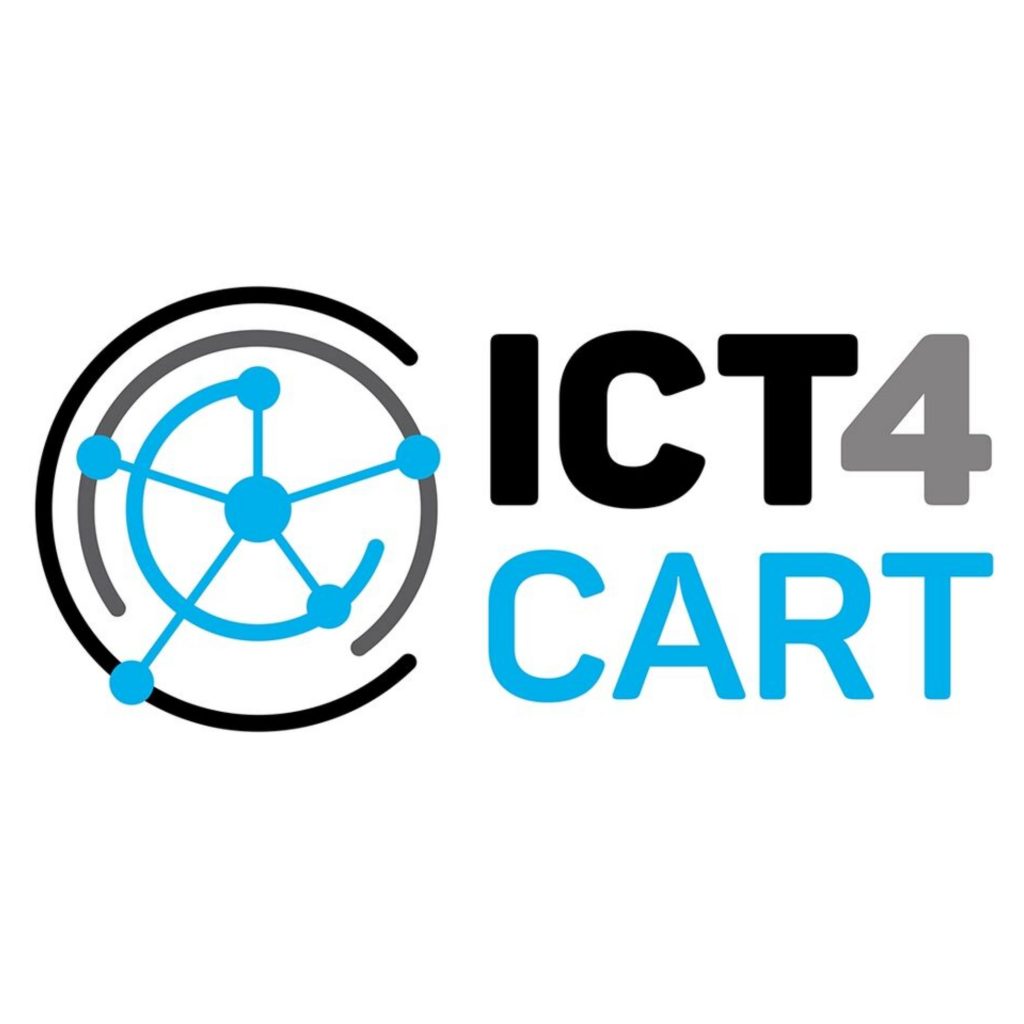ICT Infrastructure for Connected and Automated Road Transport
ICT4CART is an EU-funded H2020 innovation action and consists of 21 partners from nine EU countries, united in their vision to build a sustainable future for connected and automated vehicles.
The aim of ICT4CART, is to provide the ICT infrastructure to enable the transition towards road transport automation. ICT4CART is bringing together, adapting and improving technological advances from different industries, mainly the telecommunication, automotive and IT industries. The project adopts a hybrid communication approach where all the major wireless technologies, i.e. cellular, ITS G5 and LTE-V, are integrated under flexible “sliced” network architecture. This architecture will ensure performance and resilience for different groups of applications according to the needs of higher levels of automation. On top of that, a distributed IT environment for data aggregation and analytics will be implemented.
The result of this allows seamless integration and the exchange of data and services between all the different actors, encouraging third parties to develop, deliver and provide innovative services, thus creating new business opportunities. Cyber-security and data privacy aspects will be considered throughout the entire ICT infrastructure. In addition, innovative accurate localisation services, exploiting the cellular network and information from other sources, such as on-board sensors, especially in complex areas (e.g. urban), will be addressed. Standardisation and interoperability are of high interest within ICT4CART in order to ensure the project facilitates the transition to higher levels of automation. In this context, issues related to the frequency spectrum will be investigated, and with the organisation of relevant workshops the engagement of policy makers and public authorities will be ensured.
To achieve its objectives ICT4CART, instead of working in generic solutions with questionable impact, it builds on four specific high-value use cases (urban and highway) which will be demonstrated and validated under real-life conditions at the project test sites in Austria, Germany, Italy and across the Italian-Austrian border.
ICCS is the project coordinator, responsible for the day-to-day management of the project as well as the quality and risk management. It tis also leading the use cases refinement (T2.1), the SoA analysis and benchmarking (T6.1), the test site planning activities (T7.1), the evaluation methodology (T8.1), and the projects’ impact assessment based on end-users KPIs (T8.3). The Institute is also contributing in several other tasks of the project and it is responsible for the organisation of the final event and demonstration.


